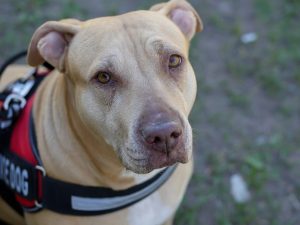If it seems like you've been hearing an awful lot in the news this year about onboard animal incidents, that's because you have. According to Delta, the carrier has seen an 84% increase in reported animal incidents since 2016, including biting, urination/defecation, and acts of aggression. And you may recall an incident last June involving a 70lb emotional support dog twice attacked a passenger, resulting in severe facial wounds.
This is, of course, not the norm for service and support animals who have undergone proper certification training.
Additionally, there's the issue of non-traditional support/service animals that could potentially harm passengers, such as snakes, spiders, gliding possums, and even turkeys.
"The rise in serious incidents involving animals in flight leads us to believe that the lack of regulation in both health and training screening for these animals is creating unsafe conditions across U.S. air travel,” said John Laughter, Delta’s Senior Vice President of Corporate Safety, Security and Compliance.
Beginning March 1, the carrier will impose stricter policies on service and support animals. Passengers flying with service or support animals must provide proof of health and vaccinations 48-hours prior to departure. And in addition to the already required signed letter from a doctor or mental health professional, service animals and emotional support animals will also need a signed document confirming that they can behave if traveling without a kennel in the cabin. All documents must be current within one year of the date of travel.
Documentation will be verified by Delta's newly created Service Animal Support Desk.
You'll find more on these policy updates here, as well as a complete list of exotic animals that are no longer accepted as service and suport animals.






